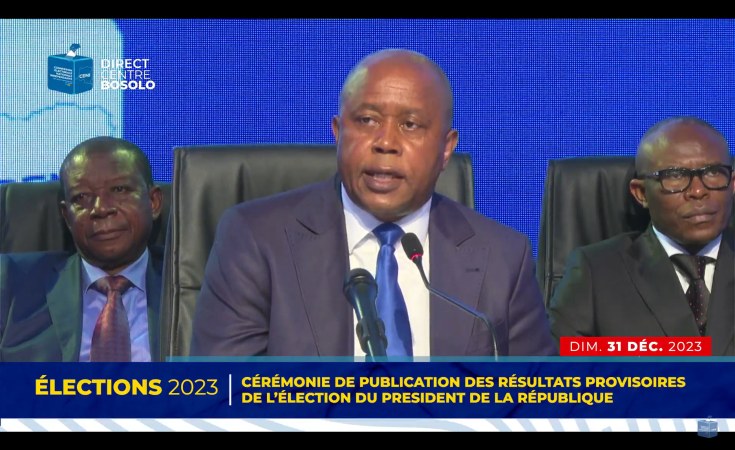CONGOLESE headed to the polls again on Thursday, December 21, in a general election marked by widespread logistical troubles that meant some polling stations never opened.
After a chaotic campaign marred by allegations of fraud, electoral violence, and logistical setbacks, the presidential and legislative elections in DR Congo started despite severe disruptions as polling stations experienced lengthy delays on the morning of Wednesday.
The troubled mineral-rich country staged four concurrent elections - on Wednesday to elect a president, national and regional lawmakers as well as local councillors - amidst armed conflict and a climate of instability in the country's west and east.
Reports indicate that day one was marked by massive delays nationwide, with the electoral commission still attempting to deliver materials to voting stations long after polls were meant to have opened.
As reported, voters encountered extended wait times at numerous polling stations in the capital, Kinshasa, and other urban centers, with openings delayed by approximately two hours. In some places, polls never opened, leaving people unable to cast ballots. Denis Kadima, the head of the electoral commission, on Wednesday night declared on national television that places unable to vote that day would vote on Thursday.
Five opposition presidential candidates, including Martin Fayulu and Dr Denis Mukwege, rejected the extension on Wednesday night on the grounds that it was illegal and, in a joint statement, called for fresh elections.
Incumbent President Félix Tshisekedi, 60, is in competition with 18 other candidates, vying for the presidency in an election where over 44 million people are registered to vote.
Delays were reported in towns in DR Congo's volatile east and in Kinshasa, where voting materials had not arrived at polling stations and voter lists were not published.
"It is a total chaos," opposition presidential candidate Martin Fayulu, who was runner up in the disputed 2018 presidential election, said, noting that while the vote was well organised in Gombe district in the capital where he voted, it was not the case in the rest of the country.
"If all the people don't vote in all the polling stations indicated by the CENI (national election commission), we won't accept these elections," Fayulu warned on Wednesday.
In the northeastern town of Bunia, individuals who had fled violence and were unable to return to their home villages to vote expressed their frustration by attacking a polling station, causing damage to voting machines before police intervened to restore order.
On Wednesday, voters reportedly waited in long queues at many polling stations in the capital, and other cities as they opened about two hours late, with ballot papers being delivered at the last minute.


